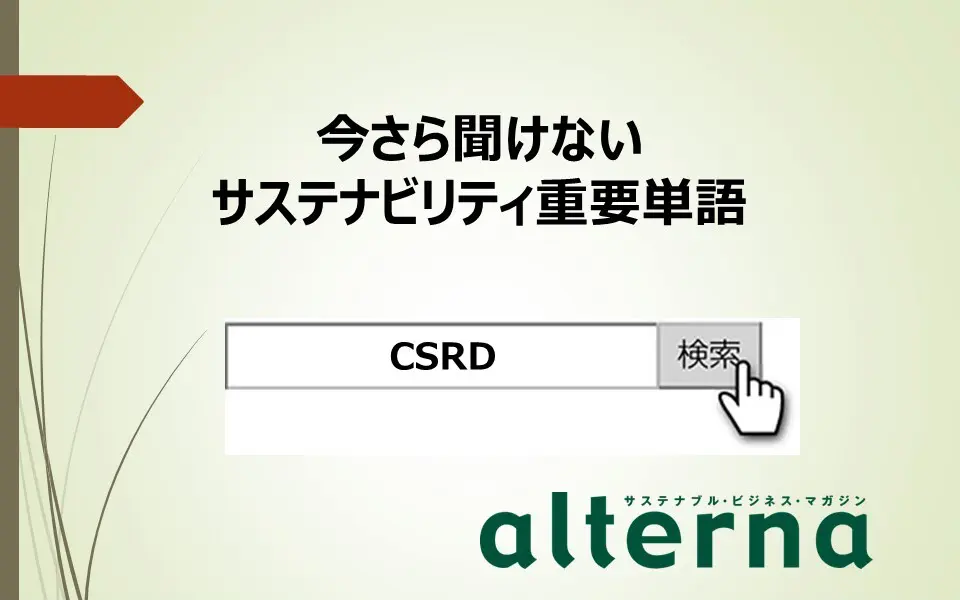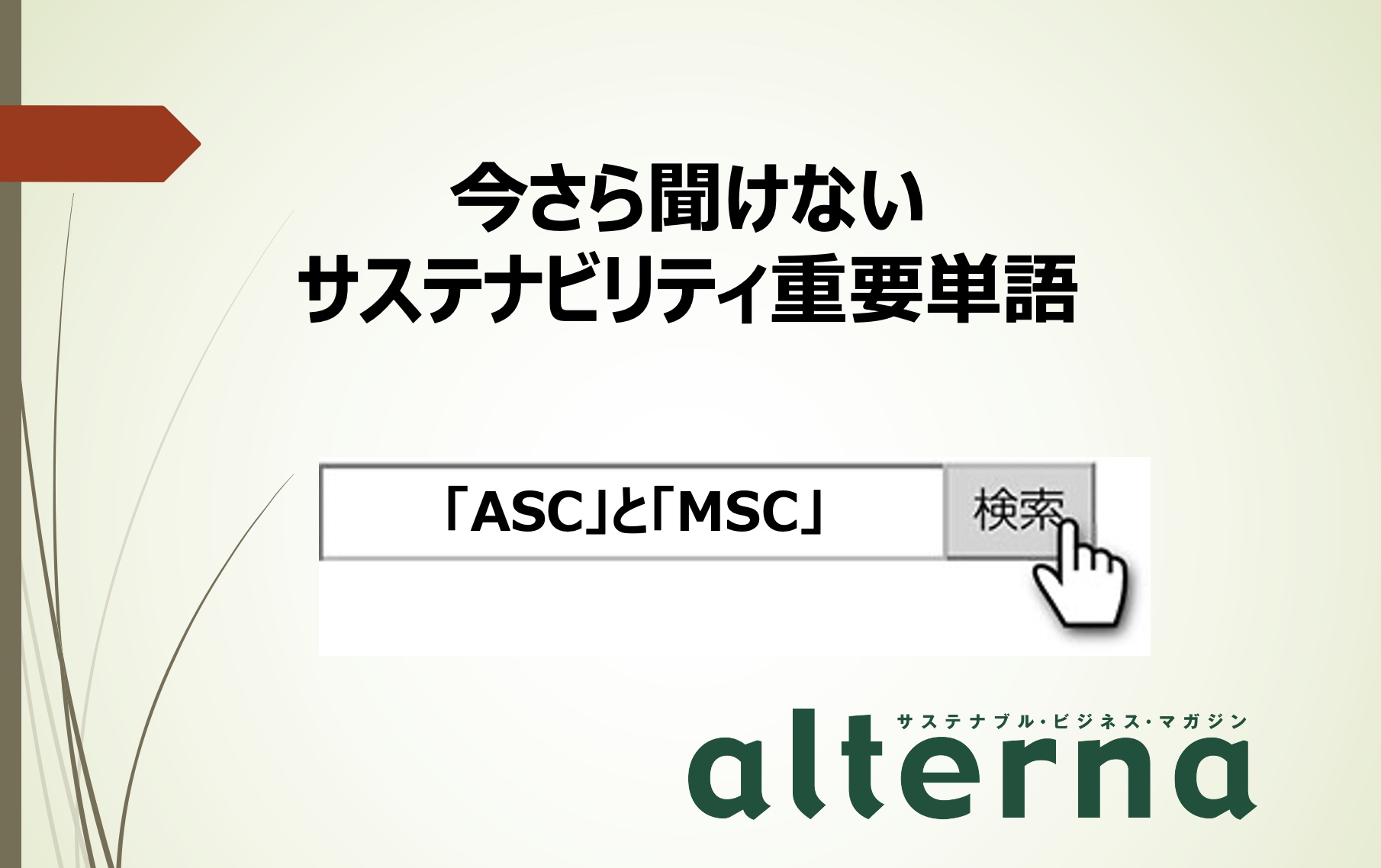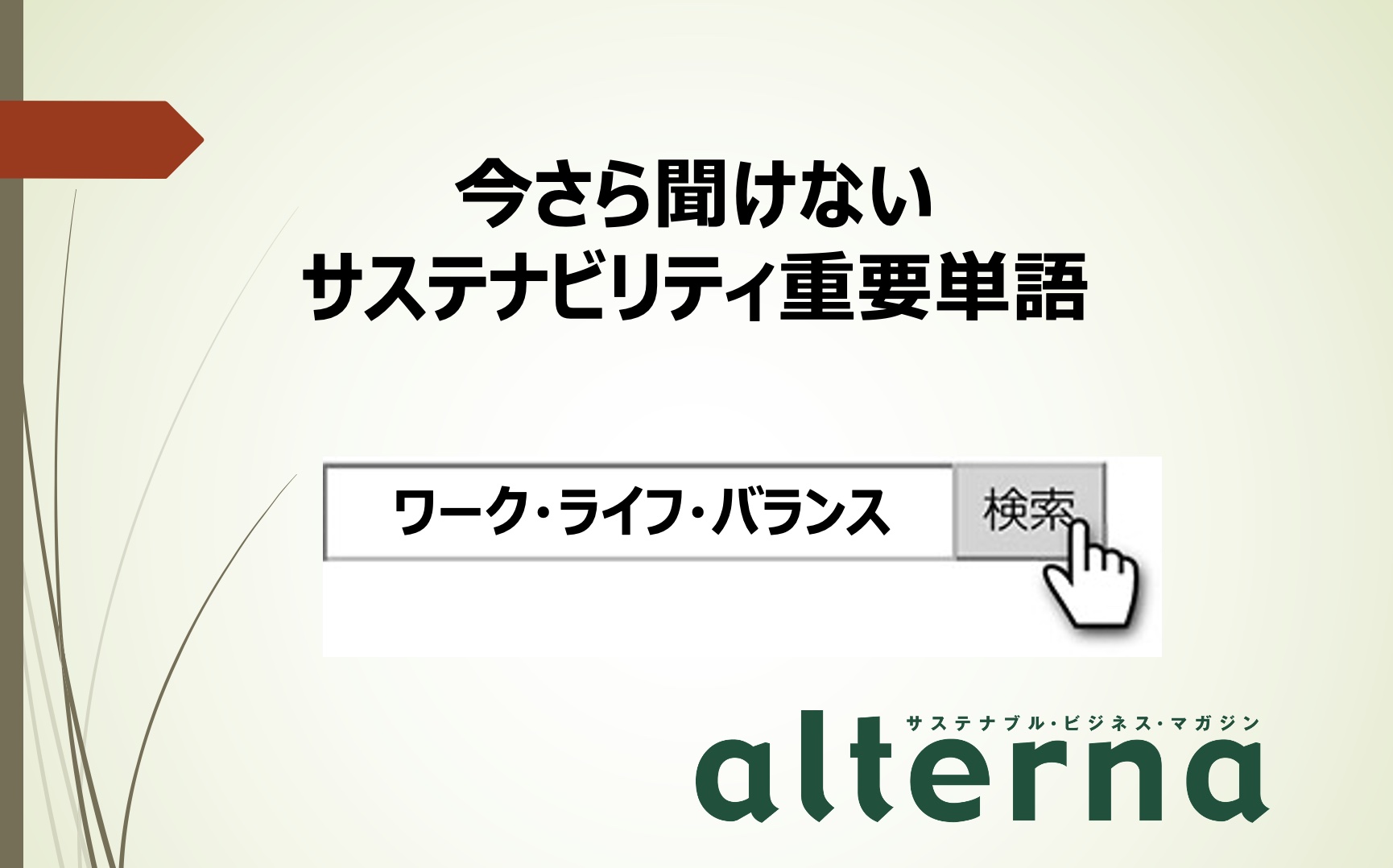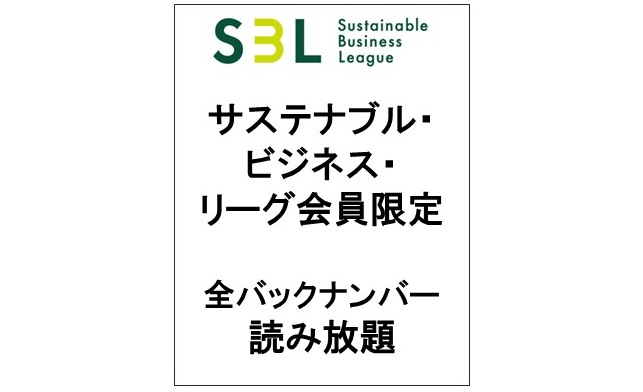■オルタナ式英単語:“What is Consumer-focused Management?”
受験シーズンが始まりました。中学受験、大学受験、大学院受験(文学研究科と経営戦略研究科、それぞれ修士と博士の入試を計4回経験しました)を思い出します・・。受験生のがんばりが報われますように、また何より無事に入試が終わりますように願っています。
今月はLesson5 “What is Consumer-focused Management?”「消費者志向経営とは何か」
を取り上げます。消費者志向経営について、消費者庁のサイトには次のように書かれています。「消費者庁では、消費者と共創・協働して社会価値を向上させる経営、すなわち消費者志向経営の推進に取り組んでいます。消費者志向経営は、持続可能で望ましい社会の構築に向けて、自らの社会的責任を自覚して事業活動を行うことを柱の一つとして位置付けており、国際的に取り組んでいる持続可能な開発目標(SDGs)とも関連深いものです」。
消費者の役割や問題は静的なものでなく、今日も私たちの姿勢、見識、行動とともに変わりつつあるものです。「自分事」として一緒に考えていきましょう。
【語注】
concrete 具体的な
indicator 指標
proactive 積極的な、先を見越した
stagnation 停滞
flare 再発する
prioritize 優先する
prosperous 富裕な、成功している
reconstruction 再建
enact 制定する
oversight 監視、管理
formality 正式(形式的)であること、(複数で)正規の手続きJapanese companies are proceeding steadily with corporate compliance and CSR management initiatives. SDGs have been introduced as a concrete indicator of compliance. In addition, they are moving ahead with am introduction of outside directors to monitor management.
【訳】
企業におけるコンプライアンスおよびCSR経営の取り組みは着実に進展しています。コンプラアンスの具体化指標としてSDGsの導入も積極的になされています。加えて、経営を監視する社外取締役の導入も進みました。
「社内取締役」はinside director(s),「社外取締役」はoutside director(s)です。社外取締役はindependent directorともいいます。
日本の消費者政策は遅れていた
Corporate scandals reflecting the economic stagnation flare up every now and again. Serious incidents have come to light, including accounting irregularities at Toshiba, falsification of performance data at Toyo Tire & Rubber, falsification of data at Nissan, Mazda, and Suzuki, quality fraud at Mitsubishi Materials and Kobe Steel, fraudulent loans at Suruga Bank, and other serious incidents such as bid-rigging and suicide by overwork. In each of these cases, corporate profits have been prioritized above all else.
【訳】
経済の停滞を反映した企業不祥事は後を絶ちません。東芝の不正会計、東洋ゴムの性能データ改ざん、日産、マツダ、スズキのデータ改ざん、三菱マテリアル、神戸製鋼の品質不正、スルガ銀行の不正融資、その他談合や過労自殺など深刻な事態が明らかになっています。いずれも企業利益が何よりも優先された結果だといえます。
come to lightは「明るみに出る、発覚する」。
企業不正に関する表現が並んでいます。accounting irregularity「不正会計」、falsification 「改ざん」、fraud「詐欺、不正」、fraudulent loan「不正融資」、bid-rigging「談合」です。なお、ここで performanceは「性能」の意味で用いられています。
Corporate activities have improved the lives of consumers to create the convenient and prosperous society we have today. On the other hand, it is a fact that they have also had an impact on the environment and caused consumer problems. Corporations and consumers are closely related to each other. During the post-WW2 reconstruction period of Japan, the government focused on industrial development. As a result, consumer policy lagged far behind that of other developed countries.
【訳】
企業活動は消費者の暮らしを向上させ、いまの便利で豊かな社会を作り上げてきました。反面、環境に負荷を与え、消費者問題を引き起こしてきたことも事実です。企業と消費者は密接な関係を持っています、戦後の復興期、行政は産業育成に力を注いできました。その結果、一方の消費者政策は先進国の中でも非常に遅れていたのです。
lag behind 「後れをとる」。強調する場合はlag far behindとなります
In 2004, the Consumer Protection Fundamental Act was revised, and the Basic Consumer Law was enacted. In 2009, the Consumer Affairs Agency was established to serve as a command post for consumer administration from the perspective of individual citizens. At the same time, the Consumer Affairs Commission was established as an independent, third-party body with oversight functions for consumer administration in general, and consumer administration has finally been enriched.
【訳】
2004年、消費者保護基本法が改定され、消費者基本法が制定されました。2009年には、国民ひとりひとりの立場に立った消費者行政にむけ、その司令塔としての消費者庁が設立されました。同時に、消費者行政全般に監視機能を持つ独立した第三者機関として「消費者委員会」が発足し、ようやく消費者行政が充実してきたのです。
消費者保護基本法については様々な訳語の可能性がありますが、「省庁のホームページ上で公表されている法令等の外国語訳」(首相官邸サイトhttps://www.kantei.go.jp/ )では Consumer Protection Fundamental Actとなっています。
the Consumer Affairs Agencyは「消費者庁」です。command post は「指揮所」いわゆる「司令塔」ですね。
third-party bodyは「第三者機関」。よく使う表現ではないでしょうか。
「消費者」の位置づけが不明確
The consumer is positioned as a core stakeholder. Nevertheless, they are often regarded as customers in business management. Customers are the users of the business’s products and services, and consumers are the members of society who confront the company with a broader concept. It is natural for them to put focus on their customers, but business have to pay attention to the consumers with rights.
【訳】
消費者はコアステークホルダーとして位置付けられています。ですが、事業経営において顧客と捉えられている場合が多いのです。顧客はその事業者の商品やサービスを利用する者、消費者はもっと広い概念で企業に対峙する社会の構成員です。顧客を重視するのは当然ですが、権利を持っている消費者を重視する必要があります。
消費者と顧客の違いについて述べられています。消費者庁のサイトでは「消費者」を以下のように定義しています。「現在の顧客に限定せず、事業者が提供する商品・サービスを将来利用する、又は関与する可能性のある主体(自社従業員、取引先、地域住民など)すべてを指しています」。参考にしてください。消費者志向経営について知る | 消費者庁 (caa.go.jp)
消費者志向経営の実践
Consumer-oriented management is based on respect for the eight rights of consumers as well as the five responsibilities of business owners as outlined in the Consumer Basic Law. Specifically, the five responsibilities are: 1) to ensure safety and fairness in transactions with consumers; 2) to provide necessary information; 3) to consider consumers’ knowledge, experience and property conditions when conducting transactions; 4) to establish a system to handle complaints appropriately and promptly; and 5) to cooperate with national and local government consumer policies.
【訳】
消費者志向経営の根拠としたのは「消費者基本法」が示す消費者の8つの権利の尊重とともに、事業主の5つの責務の実行です。5つの責務とは、具体的には、消費者に対し (1)安全と取引の公正を確保すること、(2)必要な情報を提供すること、(3)取引の際に消費者の知識や経験、財産状況などに配慮すること、(4)苦情を適切かつ迅速に処理する体制の整備と適切な処理、(5)国や自治体の消費者政策に協力することです。
「消費者基本法」が示す消費者の8つの権利とは、消費者団体の国際的組織である国際消費者機構が提唱した(1)「基本的需要が満たされる権利」(the right to satisfaction of basic needs)(2)「安全が確保される権利」(the right to safety)(3) 「情報が提供される権利」(the right to be informed) (4)「選択する権利」(the right to choose) (5) 意見を反映させる権利」(the right to be heard) (6)「被害が救済される権利」(the right to redress)(7)「消費者教育の機会を受ける権利」(the right to consumer education)(8)「健全な環境を求める権利」( the right to a healthy environment )です。
1962年、ケネディ大統領が提唱した「消費者の4つの権利」がベースになっています。
It is important that business should look for ways to have contact with consumers and always pay attention to the outside world in order to avoid falling into the company’s internal logic. It is of utmost importance that they must be prepared to put into practice schemes that ensure business management reflects the substance of actions, rather than the formality of actions.
【訳】
重要なことは、常に消費者との接点をいかに多く持つかを模索することであり、企業内倫理に陥らないために、常に外部の目を大事にすることです。何よりも重要なことは、形式的でなく、実質的な中身を重要視し、確実に企業経営に反映しようとする覚悟を持ち、実践していくことです。
fall into は「~の状態になる」「~のジャンルに入る」。罠に落ちる、(悪い)習慣がつく、といったニュアンスでも用いられます。
今回は、「消費者」の問題について、企業側から考えていきました。消費者の権利が当然のこととして守られ、事業主が当然のこととして責務を果たしていくような社会になるため、企業側がすべきこと、できることはまだたくさんあります。
一方で、日本において「消費者」という概念、その役割についての意識は十分根付いているとはいえません。消費者としての行動については後章で取り上げますが、私たちひとりひとりが消費者としての役割を意識すること、そのために何が必要かを考えることも求められているといえそうです。
今月はここまでです。また来月お目にかかりましょう。




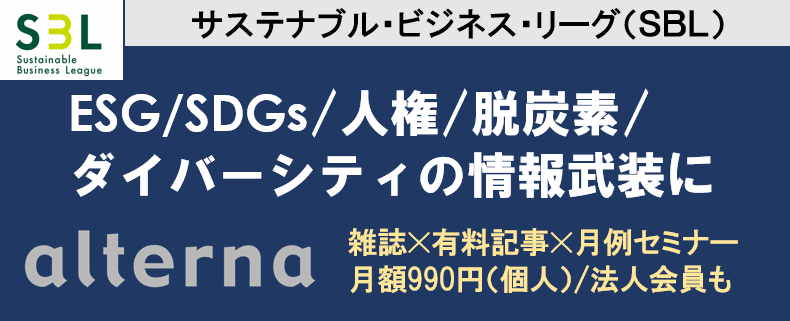




-1-scaled.jpg)

-scaled.jpg)







